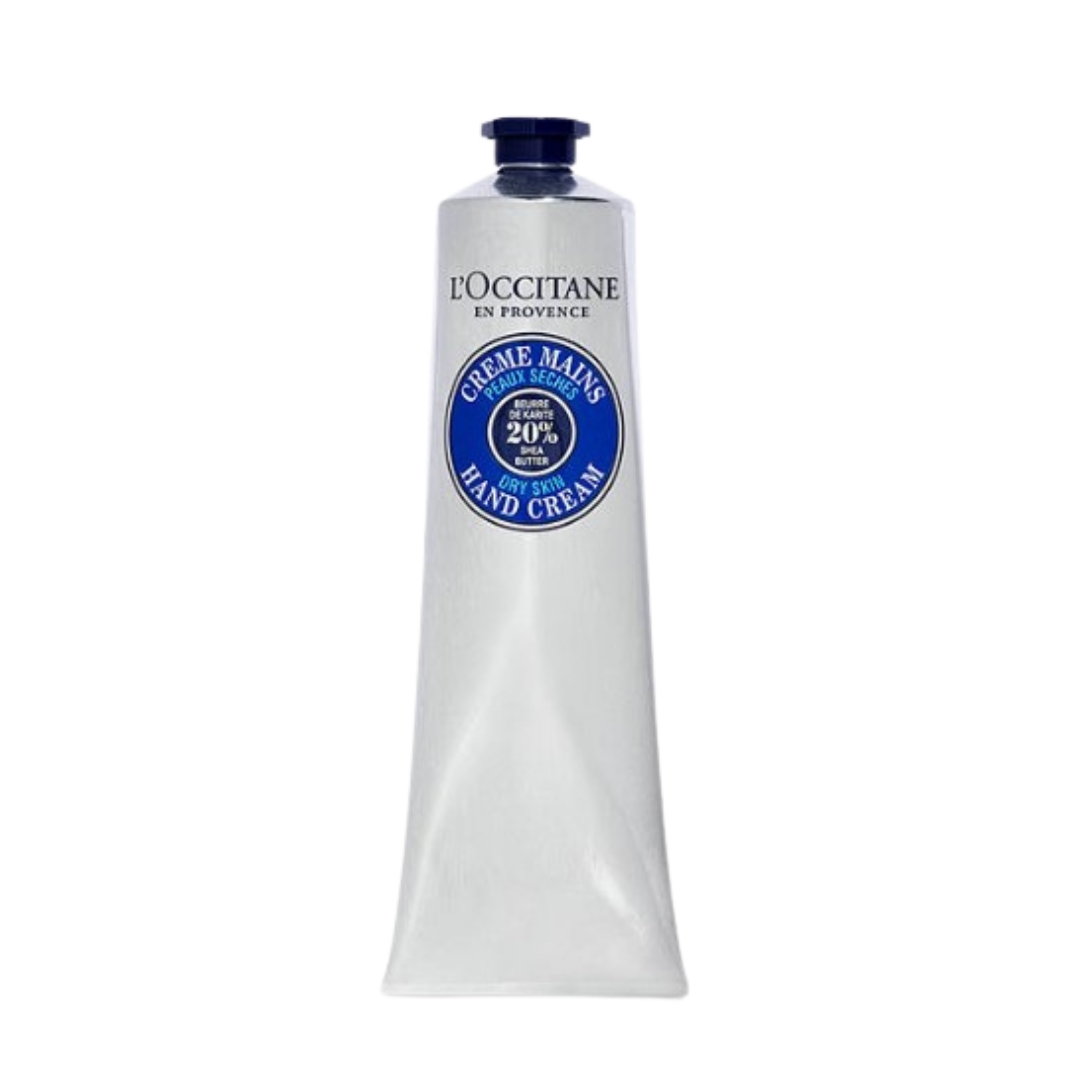6 mistakes that could be making your dry hands worse
Dry hands are a real pain, so we've asked the experts to share what mistakes to avoid when combating them...
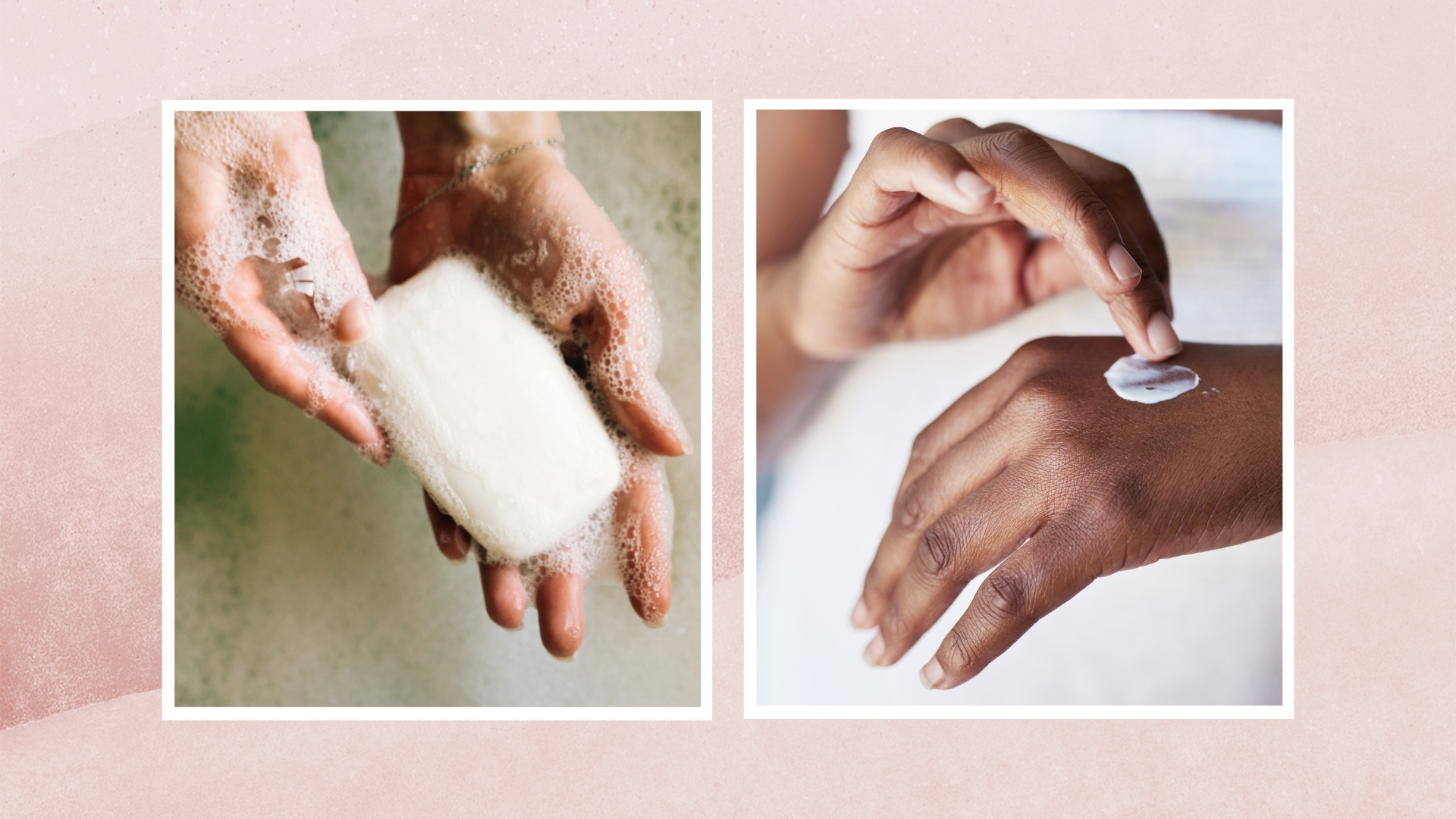

Winter is the season of cosy nights in, chunky knitwear, deep red lipstick and - slightly less glamorously - dry hands.
So why is it that we’re so much more reliant on our best hand creams in the colder months than we are during the summer? "Hands are exposed to the elements more than other parts of the body, and are often cold or wet as a consequence," says Dr Julian Peace, a doctor specialising in dermatology and working as an advisor for E45. "There are also fewer sebaceous glands than in other areas – sebaceous glands are found in hair-bearing skin, and our palms in particular are seldom hairy." Without sebaceous glands to produce oil, the skin is less able to retain moisture, leading to tightness, roughness and even cracking.
Alas, as much as we might want to, we can’t do much about the weather but there are a few other dry hand contributors that we can tackle. So, to help you avoid the most common missteps, we’ve asked the experts to share their thoughts on what could be making your dry and chapped hands worse...

Dr Julian Peace is a doctor with a special interest in dermatology. Alongside his practice, he is also an advisor to skincare brand E45.

Antonia Philip is a paediatric nurse who was inspired to found handcare brand Nursem after having to take weeks off work due to the condition of her hands. For every Nursem product purchased, the company donate a months worth of free hand cream to a nurse or midwife.
6 mistakes that might be making your dry hands worse
"There are several causes for hands becoming dry," explains Antonia Philip, co-founder of hand cream brand Nursem. "These include frequent hand washing, using harsh chemical products like hand sanitiser or detergents and exposing your hands to hot water."
Now, that's quite the list of potential factors, many of which are very present in our everyday lives but luckily, the experts have outlined exactly why these habits can exacerbate the issue - and how we can avoid them...
1. You’re not using hand cream
If you’re serious about nailcare or treating age spots on your hands then you’re probably already using a hand cream every day and if you’re not, now’s the time to start.
"Hands are one area of the body that are overly exposed to the elements such as cold weather, hot water and frequent hand washing, which can all weaken the skin barrier and make them feel dry very quickly," says Philip. That’s why it’s so important to use a hand cream to soothe existing dryness and prevent future irritation. "We don’t usually protect the skin on our hands as much as we would with facial skincare for example, but it’s just as important to protect the skin barrier on our hands as it is our faces," Philip adds.
Sign up for the woman&home newsletter
Sign up to our free daily email for the latest royal and entertainment news, interesting opinion, expert advice on styling and beauty trends, and no-nonsense guides to the health and wellness questions you want answered.
In an ideal world, you’d be using a dedicated hand cream that’s been formulated with the key needs of this area of skin in mind, but if you don’t have one then a little of the best body cream or even any excess from your best night cream will do the trick.
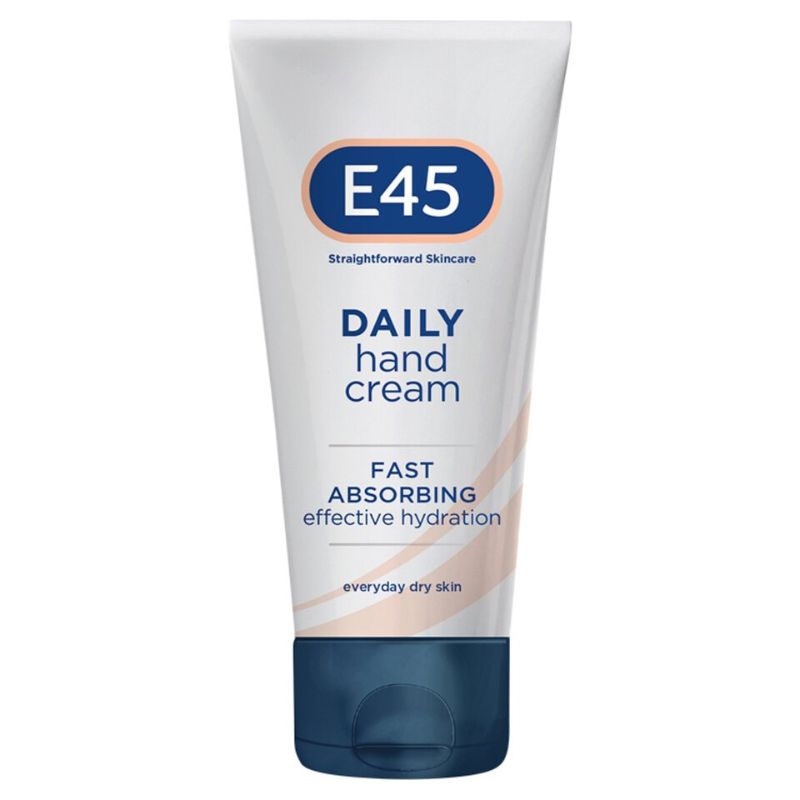
RRP: £4.29
A hardworking hand cream that won't break the bank, this soothes chapped mitts instantly and absorbs quickly, so you're not left feeling greasy.
2. You’re not wearing gloves when out and about
When it’s cold outside, "external humidity is also often lower," explains Dr Peace, which means there’s very little moisture in the atmosphere for our skin to absorb. It’s the same story inside too, as "turning up the heating in the house also lowers the humidity and can dry skin out," Dr Peace adds. This isn’t a great scenario for the skin on our hands, especially when you consider that it also doesn’t take too kindly to dramatic changes in temperature – say, for example, going from a freezing cold walk to a warm cosy house.
To minimise the impact of limited humidity and temperature changes on your hands, make sure you’re wearing gloves as well as using hand cream. "Apply a fast-absorbing hand cream little and often throughout the day for maximum protection and remember to wear gloves in cold weather if you can," says Philip. Forgotten your gloves? No worries. Just pop your hands in your pockets instead.
3. You’re washing your hands the wrong way
Washing our hands is a very necessary part of daily life for obvious hygiene reasons, but washing too often, at the wrong temperature or with products that are too stripping can all make dry hands worse.
"Avoid harsh soaps and hand washes (especially washing up liquid) at all costs," says Philip, "These will immediately strip the natural protective lipids off of your hands, leading to dryness and irritation." Instead, Dr Peace recommends, "washing your hands in tepid water, ideally with an emollient cleanser rather than a soap." An emollient cleanser will cleanse the skin at the same time as moisturising it, so you can enjoy nice clean hands without feeling like they’re tight or cracking afterwards.
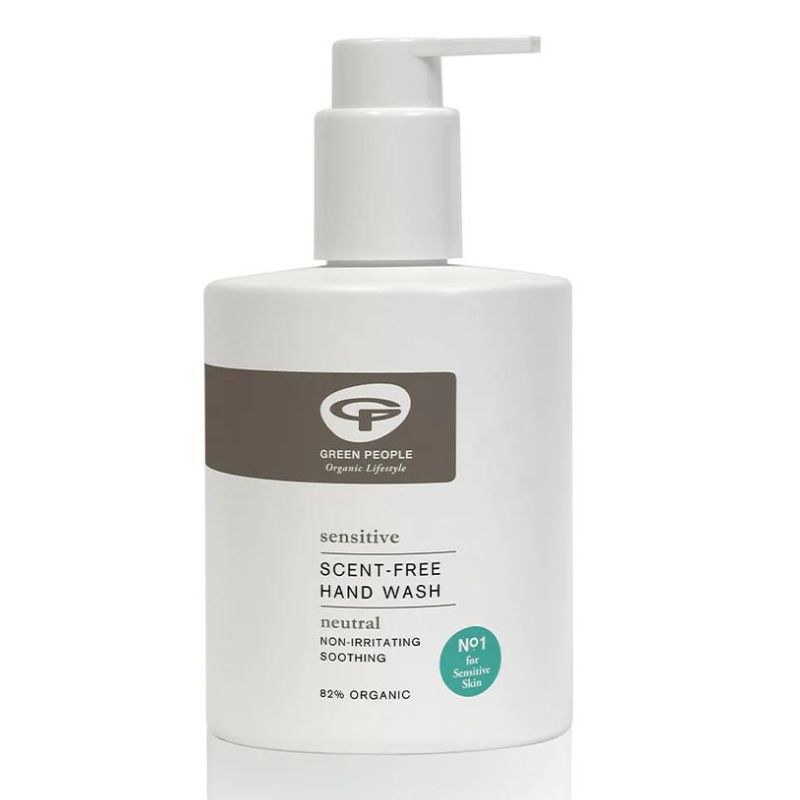
RRP: £14
Swap super-foamy formulas for a sulphate-free hand wash like this one from Green People. It gives a satisfying clean without leaving your hands feeling stripped.
4. You’re not wearing washing up gloves
You’d never dream of using a quick spritz of multi-purpose spray on your face instead of your best cleansers would you, so why are we so willing to expose our hands to strong, drying and even potentially abrasive cleaning products? If it’s designed to remove grease from pans, then it’s certainly not suitable for your hands, so make sure you’re never without a pair of your trusty marigolds when washing up or doing any kind of household cleaning. You’ll not only notice that your hands don’t feel as dry and sore as they once did but also that your gel mani or gel nail alternatives last for much longer. Win-win.
5. You haven’t considered ‘hand slugging’
Not all hand creams are the same you know. Some will focus on rehydrating and nourishing, whereas others are all about protection and creating a seal over the skin. The problem with the second type of formula is that they use a type of ingredient called an occlusive, which includes things like petroleum (which you’ll find in Vaseline) and lanolin (a waxy substance that often comes from the wool of sheep). They work by forming a protective layer over the skin to prevent moisture loss, but the downside is that they stop moisture from getting into the skin, so it feels just as dry when the cream has washed off.
The most effective approach is a two-pronged one known as 'hand slugging'. "This is where you add another layer over your hydrating hand cream to lock in moisture," explains Philip. By applying in tandem, both types of hand cream will work more effectively. Just keep in mind that applying two lots of hand cream makes for very slippery hands, so it’s best to save slugging until before bed to avoid your fingers sliding all over your keyboard.
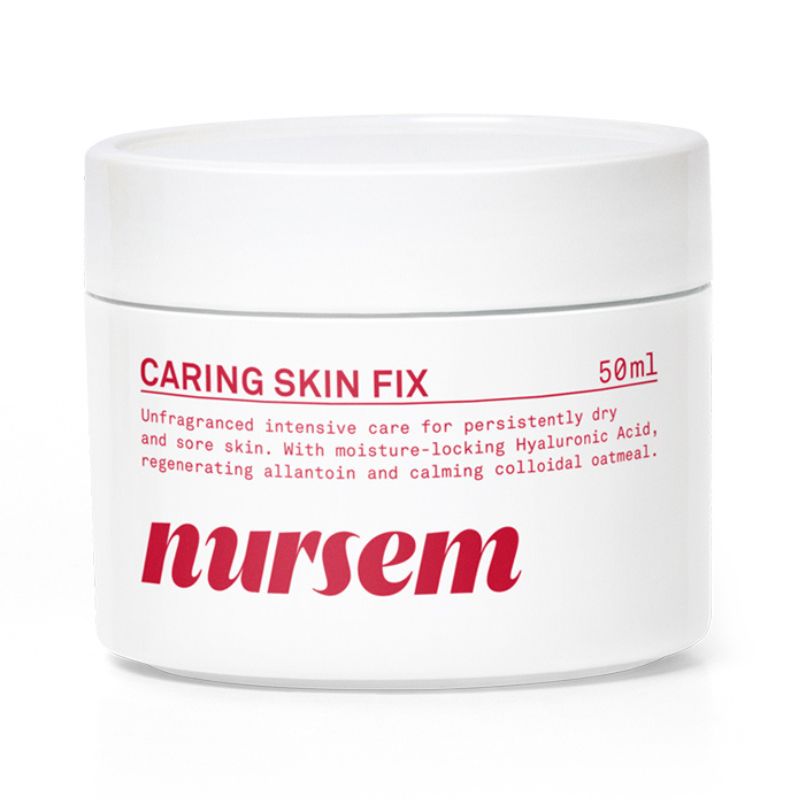
RRP: £14.99
The most intensive formula in the Nursem range, this makes for an ultra-nourishing top layer if you want to give hand slugging a go.
6. You haven’t upgraded your hand cream
It’s not just weather and washing that can make dry hands worse, but also things like our genes and age. "Age is a factor, and skin becomes progressively drier once you pass around 40 years of age," says Dr Peace. For this reason, you may find that the hand cream that used to work wonders isn’t quite up to the job anymore.
Just like we’d recommend trading your best powder foundation for one of the best-tinted moisturisers as you get older, it’s also a smart idea to swap lightweight hand creams for something thicker and more substantial.
Jess Beech is an experienced fashion and beauty editor, with more than eight years experience in the publishing industry. She has written for woman&home, GoodtoKnow, Now, Woman, Woman’s Weekly, Woman’s Own and Chat, and is a former Deputy Fashion & Beauty Editor at Future PLC. A beauty obsessive, Jess has tried everything from cryotherapy to chemical peels (minus the Samantha in Sex and The City-worthy redness) and interviewed experts including Jo Malone and Trinny Woodall.
-
 Need spring style inspiration? Jennifer Aniston proves a shirt dress is the most versatile item you can invest in
Need spring style inspiration? Jennifer Aniston proves a shirt dress is the most versatile item you can invest inIf you only buy one piece this weekend, make it a shirt dress
By Matilda Stanley Published
-
 Celebrities you never knew got their start as models, from Angelina Jolie's 'terrible' experience to A-listers who started as pageant queens
Celebrities you never knew got their start as models, from Angelina Jolie's 'terrible' experience to A-listers who started as pageant queensWhether it was just for a short time or it's how they got discovered for something else, these stars owe it all to striking a pose
By Jack Slater Published
